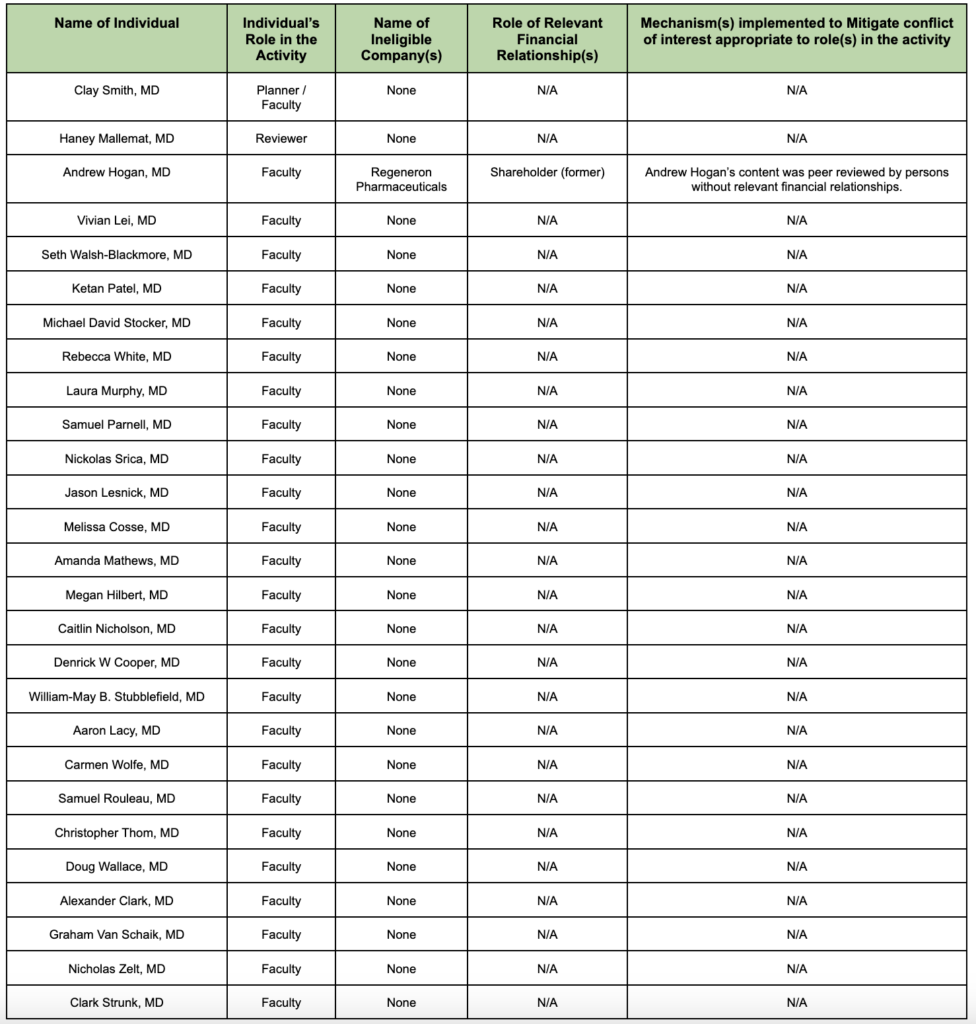Blog
-
Jul 26 2024
Is High-Sensitivity Troponin Actually Helping Us?
Read MoreSpoon Feed
This RCT of U.S. patients being evaluated for acute MI using a 0/1 hour hs-cTnI protocol, compared to standard care with a 0/3 hour hs-cTnI protocol, didn’t find a difference in the percentage of patients discharged from the ED nor in the rates of 30 day death or MI.Source
Rapid Acute Coronary Syndrome Evaluation Over One Hour With High-Sensitivity Cardiac Troponin I: A United States-Based Stepped-Wedge, Randomized Trial. Ann Emerg Med. 2024 Jun 15:S0196-0644(24)00235-X. doi: 10.1016/j.annemergmed.2024.04.024. Epub ahead of print. PMID: 38888531. -
Jul 25 2024
I Don’t CIWA We Can’t Use RASS Instead
Read MoreSpoon Feed
The first direct comparison of the Clinical Institute Withdrawal Assessment-Alcohol Revised (CIWA-Ar) scale to a slightly modified Richmond Agitation and Sedation Scale (mRASS-AW) in a pre-post quality assurance study found mRASS-AW to not compromise length of stay or safety for the evaluation of alcohol withdrawal syndrome (AWS), while we already know it to be faster and more intuitive.Source
Replacing the Clinical Institute Withdrawal Assessment-Alcohol revised with the modified Richmond Agitation and Sedation Scale for alcohol withdrawal to support management of alcohol withdrawal symptoms: potential impact on length of stay and complications. CJEM. 2024;26(6):431-435. doi:10.1007/s43678-024-00710-7 -
Jul 24 2024
What NOT to Use for Syphilis? Azithromycin Resistance Skyrockets
Read MoreSpoon Feed
Treponema pallidum, the bacteria that cause syphilis, has nearly universal (99.2%) resistance to azithromycin. Use penicillin in these patients.Source
Near-Universal Resistance to Macrolides of Treponema pallidum in North America. N Engl J Med. 2024 Jun 13;390(22):2127-2128. doi: 10.1056/NEJMc2314441. PMID: 38865666 -
Jul 23 2024
Medical AI – You Reap What You Sow
Read MoreSpoon Feed
This thoughtful review illustrates how human biases and ethical assumptions impact medical AI models, as outputs are based on the training data ingested, human fine-tuning to optimize responses, and the nature and perspective of prompts used. As such, the authors recommend caution in the application of AI to medical decision making.Source
Medical Artificial Intelligence and Human Values. N Engl J Med. 2024 May 30;390(20):1895-1904. doi: 10.1056/NEJMra2214183. PMID: 38810186. -
Jul 22 2024
The Future of AI for EM – It’s Kind of Exciting!
Read MoreSpoon Feed
Emergency medicine practice is going to be increasingly influenced by artificial intelligence (AI). This article discusses some of the ways we can expect it to impact our practice.Source
The AI Future of Emergency Medicine. Ann Emerg Med. 2024 May 22:S0196-0644(24)00043-X. doi: 10.1016/j.annemergmed.2024.01.031. Online ahead of print. PMID: 38795081 -
Jul 19 2024
Anatomically vs Physiologically Difficult Airways
Read MoreSpoon Feed
An analysis of the NEAR database demonstrated a lower first-pass success rate of 89.2% for patients with anatomically difficult airways (ADA) compared to 93.7% in the control group. First-pass success for physiologic difficult airways (PDA) was 92.9% and fell to 87.4% for those with both ADA/PDA.Source
First-Attempt Success Between Anatomically and Physiologically Difficult Airways in the National Emergency Airway Registry. Anesth Analg. 2024;138(6):1249-1259. doi:10.1213/ANE.0000000000006828 -
Jul 18 2024
Does Topical Diclofenac Work for Acute Low Back Pain?
Read MoreSpoon Feed
Unfortunately, topical diclofenac did not demonstrate substantial pain control and provided no added benefit, even when co-administered with oral ibuprofen for specific patients with acute low back pain.Source
Topical Diclofenac Versus Oral Ibuprofen Versus Diclofenac + Ibuprofen for Emergency Department Patients With Acute Low Back Pain: A Randomized Study. Ann Emerg Med. 2024 Jun;83(6):542-551. doi: 10.1016/j.annemergmed.2024.01.037. Epub 2024 Mar 2. PMID: 38441515 -
Jul 17 2024
Which Physician Specialists Are Behaving Badly?
Read MoreSpoon Feed
Unprofessional behaviors were reported most often among surgeons when comparing physician specialty subgroups.Source
Physician Specialty Differences in Unprofessional Behaviors Observed and Reported by Coworkers. JAMA Netw Open. 2024;7(6):e2415331. doi:10.1001/jamanetworkopen.2024.15331 -
Jul 16 2024
Optimal Time to Antibiotics in Pediatric Sepsis?
Read MoreSpoon Feed
In a cohort of septic children, delays in antibiotic administration 330 minutes or longer from arrival to the emergency department led to an increase in mortality.Source
Delays to Antibiotics in the Emergency Department and Risk of Mortality in Children With Sepsis. JAMA Netw Open. 2024 Jun 3;7(6):e2413955. doi: 10.1001/jamanetworkopen.2024.13955. PMID: 38837160; PMCID: PMC11154154. -
Jul 15 2024
Hematuria after Trauma…Urine Trouble?
Read MoreSpoon Feed
In a cohort of children with blunt trauma, the presence of hematuria does not predict clinically important intraabdominal injury.Source
Presence of Microscopic Hematuria Does Not Predict Clinically Important Intra-Abdominal Injury in Children. Pediatr Emerg Care. 2024 Jun 7. doi: 10.1097/PEC.0000000000003210. Epub ahead of print. PMID: 38849150.



